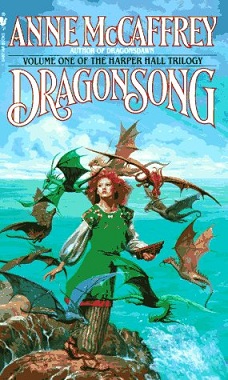Science fiction writer Patty Jansen ran into a spot of sexism the other day when she tried to sell a hard sf novel to an unnamed publisher, only to be told that women writers don’t sell. She blogged about and something about she introduced it struck me as wrong:
I also get weary of people blaming their lack of success too easily on external factors. Having success is a matter of luck and talent–but mostly luck, and persistence–before being a function of anything else. I believe that quietly chipping away and engaging with the community is more valuable than agitating out loud, because I don’t believe there is anything to be gained by being accusatory to people you should try to engage in discussion instead.
In short, I really dislike playing the gender card, but when someone chucks a whole packet of cards in my face, it becomes harder to ignore.
It’s annoying that she felt the need to distance herself from those other women who use sexism as an excuse for their own failings. It shouldn’t be necessary and it comes across as if sexism is only real now it happened to her. You hope now that she has had this experience, Jansen will be a bit more charitable when hearing other women’s experiences.
